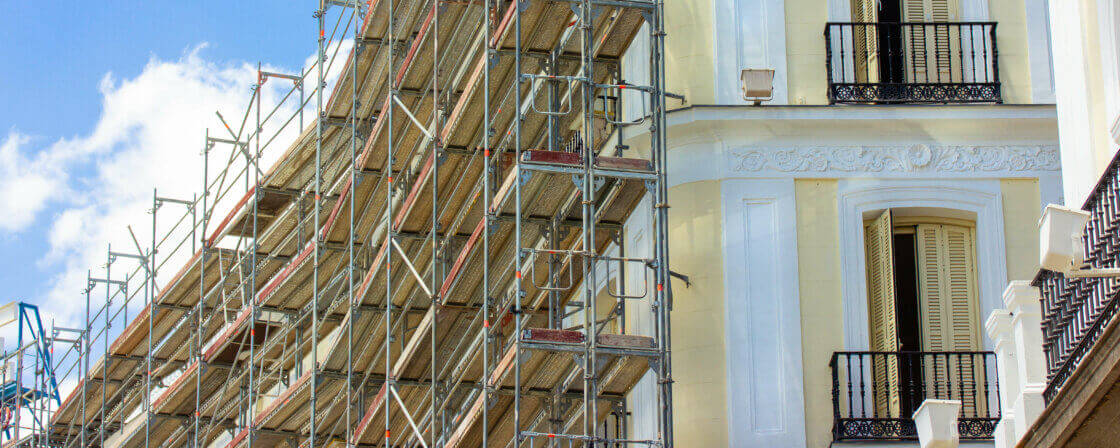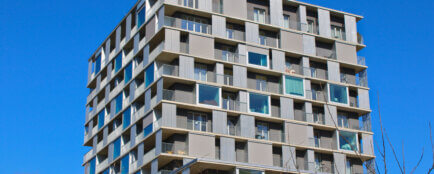The members of the SVJ committee are elected by the assembly of all owners. As a rule, this is a free function. Even if a certain symbolic remuneration is paid, it is not an employment relationship with the community.
If you are a member of a unit owners’ association committee or the chairman of a HOA, you probably already know that the ability to move things forward is bought by a relatively large amount of duties, administration, responsibilities and communication with unit owners. The reward for all this is at best a good feeling, because as we have already mentioned, the reward is often only symbolic.
On top of that, you are generally managing property worth tens of millions and dealing with contracts worth tens (to hundreds) of thousands of crowns. In all this, however, you have to rely mainly on your own wits and skills, and at most in partial cases on the help of a management company. It is therefore advisable not to take all the responsibility on yourself (or to take out liability insurance) and not to risk replacing many thousands of dollars of damage.
Are you solving a similar problem?
Are you dealing with legal problems with your JVU?
We will provide you with a lawyer for SVJ or BD for 6 or 12 months. He will be available at any time to represent you in court or with the authorities and help you with any legal issue. All this for a price you know in advance and the option to pay after the service is completed.
I want to consult a lawyer
- When you order, you know what you will get and how much it will cost.
- We handle everything online or in person at one of our 6 offices.
- We handle 8 out of 10 requests within 2 working days.
- We have specialists for every field of law.
Duty to act with due care
The Civil Code imposes a duty on committee members to act with due care and diligence, to act with the requisite knowledge and care and to perform their duties with the necessary loyalty, i.e. to act always in the interests of the community of unit owners and not in their own interests.
Whether this is the case in practice may, however, be seen somewhat differently by committee members and unit owners. This can lead to disputes as to whether contracts for partial repairs to the building have been properly handled, the most appropriate body has been found to carry them out, the works have been carried out carefully and sufficiently and whether the price of the contract is appropriate or excessive.
Tip for article
Tip: The community of unit owners functions thanks to individual bodies, whose existence is partly prescribed by law, but can also be created voluntarily. We have discussed what these bodies are and what the relationships between them are in the article you can find on our blog.
Liability for damages
In addition to the duty of care owed by a member of the Committee, a member of the Committee shall also be liable for any damage caused by a breach of care. Damages can be sued in court by unit owners. According to the Civil Code, the committee is obliged to compensate for the damage caused to the HOA by the breach of its duties. This obligation applies to each member of the committee, although it may be that they may have devoted different amounts of time to the contract in question. If the damage caused to the HOA is not due to the breach of duty of the committee members but, for example, to the actions of a third party, the committee is not liable.
The office of the Affordable Advocate has been contacted by committee members who have been sued by some unit owners for damages to the building. The construction company nearly demolished a load-bearing wall during the renovation of the basement, causing significant structural damage to the house and generally causing great damage to the house. The unit owners believed that the committee, which had commissioned and to some extent supervised the remodeling, was responsible for the situation. However, it was clear from the documents obtained from the committee members that the demolition of the wall did not correspond at all to the contract awarded, but was in direct contradiction to it, and that the fault was clearly on the part of the contractor. However unpleasant the situation was for the members of the Committee, it was therefore easy to refute the claim.
Disputes can also generally relate to the invalidity of an assembly resolution or to conduct in contravention of a valid assembly resolution.
Under the law, the liability of the members of an HOA committee is for damages:
- objective – meaning that the member is liable for the damage regardless of fault and bears the burden of proof. It can be recovered up to 3 years retrospectively,
- unlimited – the member is personally and unlimitedly liable for the damage with all his/her property,
- joint and several – members of the company’s bodies are jointly and severally liable for the damage.
Tip for article
Tip: The bylaws of the unit owners’ association are the basic document in an apartment building. If you are at the birth of a new statute or an amendment to it, then you need to make sure that it contains all the elements required by law. We have described which they are in our article.
Presumption of negligence
Under the Civil Code, the rule is that if someone undertakes an activity that requires special knowledge, skill or care, then he should possess and exercise those qualities. If he fails to exercise them, he is deemed to have acted negligently. This rule can also be applied to members of the JAC committee, however harsh its application may seem. If the committee makes decisions on legal, construction or commercial matters, it is presumed that they have the necessary legal, economic or technical knowledge or can easily acquire it. The members of the committee are responsible for that too. Given the non-profit nature of the JVU and the fact that committee positions are often unpaid, this requirement can be considered very strict. Everyone should therefore carefully consider whether they are willing and able to serve as a member of the SVJ committee.
Insurance for members of the JAC committee
If you want to be able to sleep soundly as a member of an HOA committee, then it is more than advisable to take out insurance.
The insured is a member of the SVJ body and liability for damage or injury caused by a natural or legal person in connection with the performance of the duties of a committee member, or chairman or member of the control committee of the owners’ association can be insured.
The insured is any person who was, is or will be a member of the body of the HOA.
The following are covered to the basic extent:
- typically, damage to property, but possibly also non-pecuniary damage (e.g. pain and suffering, impairment of social life) if a legitimate claim for compensation has been made against the insured;
- the costs necessary for the insured’s legal defence against a claim for compensation.
As with any other insurance, the policy will not cover everything and there are exclusions. These can vary according to the range of cover offered by each insurer. Standard ones include:
- intentional damage,
- damage caused by intentional wrongful act or damage caused by conduct in connection with which the insured has received a personal benefit or has received remuneration not granted by prior approval of the owners’ meeting,
- resulting from failure to arrange or maintain adequate insurance protection for the house,
- caused by a deficiency in trust values,
- caused by the unauthorised carrying out of building work,
- caused by failure to exercise or late exercise of rights,
- damage in the form of fines or penalties or other contractual administrative or criminal sanctions.
Tip for article
Do you want to change insurance companies because of unsatisfactory conditions? Or have you discovered an offer that is much better? Read on to find out when you can terminate your insurance policy.
Prevention of damage
There is one more piece of advice that is just as important to members of HOA committees as the recommendation to get insurance, and that is to try to prevent damage. This consists primarily in active communication with the members of the building, proper conduct of meetings and minutes, and making sure that the decisions taken at the owners’ meeting are valid and approved by the necessary majority.
Of course, it is essential to communicate about all important facts, such as the status of the HOA’s debts, planned and implemented revisions, as well as planned or implemented repairs in the house.




